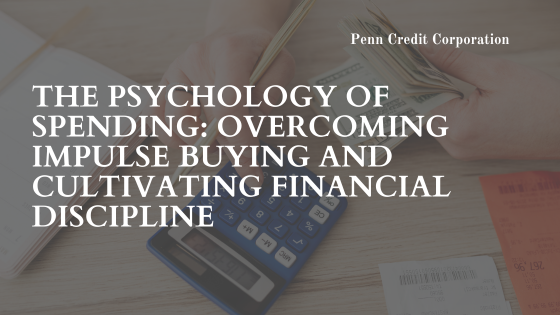In today’s consumer-driven society, impulse buying has become a common phenomenon that can wreak havoc on our financial well-being. The allure of instant gratification and the relentless marketing tactics employed by companies make it difficult to resist the temptation of impulsive purchases. However, by understanding the psychology behind our spending habits and implementing strategies to overcome impulsive behavior, we can cultivate financial discipline and achieve long-term financial stability.
The Impulse Buying Trap
Impulse buying is driven by a combination of emotional triggers and cognitive biases. Companies capitalize on our desire for pleasure, novelty, and social validation, using persuasive advertising and limited-time offers to create a sense of urgency. Additionally, our brains are wired to seek immediate rewards, often disregarding long-term consequences. This leads to impulsive decisions that can result in buyer’s remorse and financial distress.
Understanding Emotional Triggers
Recognizing emotional triggers is crucial in curbing impulse buying. Many individuals use shopping as a form of emotional coping mechanism, seeking comfort or distraction from stress, boredom, or low self-esteem. By identifying these triggers and finding alternative, healthier ways to address them, such as engaging in hobbies or seeking emotional support, we can reduce the urge to make impulsive purchases.
Mindful Spending and Delayed Gratification
Practicing mindful spending involves making deliberate, well-thought-out decisions about our purchases. Before buying, it is essential to ask ourselves if the item is truly necessary or if it aligns with our long-term goals. Creating a budget and setting financial goals can also help prioritize spending and distinguish between needs and wants. Furthermore, embracing the concept of delayed gratification allows us to overcome the allure of immediate satisfaction. By postponing purchases, we can evaluate whether they are genuinely essential or simply impulsive desires.
Implementing Strategies for Financial Discipline
Several strategies can aid in cultivating financial discipline and combating impulsive buying. One effective approach is to establish a cooling-off period for significant purchases. By giving ourselves time to reflect on the necessity and financial implications, we can make more informed decisions. Creating a list of personal financial values and referring to it before making purchases can also serve as a reminder of our long-term priorities.
Another useful technique is to practice the 24-hour rule. Before making a non-essential purchase, wait for 24 hours. This waiting period allows emotions to settle, helping us make rational choices based on our genuine needs. Additionally, tracking expenses and regularly reviewing our spending patterns enable us to identify areas where we tend to overspend and make necessary adjustments.
Support Systems and Accountability
Building a support system and having an accountability partner can significantly contribute to overcoming compulsive buying tendencies. Sharing financial goals and progress with a trusted friend or family member creates a sense of responsibility, making it easier to resist the urge to splurge. Seeking professional help from financial advisors or therapists can also provide valuable guidance and support in developing healthier spending habits.
Overcoming impulse buying and cultivating financial discipline is a journey that requires self-awareness, mindfulness, and perseverance. By understanding the psychology behind our spending habits, recognizing emotional triggers, and implementing strategies such as mindful spending, delayed gratification, and accountability, we can take control of our financial decisions. Remember, financial discipline is not about depriving ourselves but about making choices that align with our long-term goals and bring lasting fulfillment. With patience and determination, we can navigate the consumer-driven world with confidence, creating a solid foundation for our financial future.

